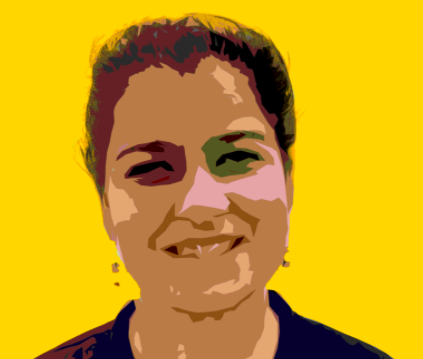Raised in a Marxist family in a small Indian town, thinking on the base of society comes naturally to Neha. As our Asian specialist on gender, Neha learnt, first at the World Bank, and then much deeper with Solidaridad, that social norms and skewed policies simply do not create a level playing field for women.
In particular, understanding the experience of working in the field was an eye opener. The livelihood model that works for men, isn’t working for women. For Neha, the conclusion is obvious: no sustainability can be achieved unless women play a more equal role and reap benefits.
The ‘problem persists’ and this is what keeps me going.
Neha
On what keeps her motivated
“The ‘problem persists’ and this is what keeps me going,” she says. Neha quotes Albert Einstein who once said, “we cannot solve problems with the same thinking we used when we created them.” With this in mind, Neha is driven to come up with new solutions to the age-old issues and challenges that are hindering the participation and growth of women in all walks of life—and particularly agriculture.
Through Solidaridad she is engaged with global teams and initiatives, and can discuss and draw parallels for the identified issues. Coupling her expertise in gender with experts in the fields of technology, data, impact investment, and climate change, she is able to structure her approach and come up with practical implementable solutions.
As the gender lead for Solidaridad in Asia Neha strives to advance gender mainstreaming throughout programmes, research and knowledge, advocacy, internal organization policy, and project coordination.
Why ‘Reclaim Sustainability’ is the bold statement we need
Neha describes ‘Reclaim Sustainability’—Solidaridad’s 2021-2025 strategic plan—as the commitment of the organization to abide by the social inclusion framework to work towards a more sustainable world. “I believe Solidaridad to be amongst the strongest organizations which have been working on sustainable supply chains in a most profound manner,” she says. Neha sees ‘Reclaim Sustainability’ as a meaningful statement on inclusivity and in favor of the marginalized and ones at the lowest footstep of the supply chain. These communities, she says, are “indispensable if the change has to be sustainable rather than ephemeral.”
What is sustainability without gender equality?
“I got enthused with the clarion call of ‘Reclaim Sustainability.’ This is where Solidaridad challenges the status quo, norms and behaviour.”
But, Neha points out, this forward thinking must also challenge gender norms. “We talk about inclusivity — digital, financial. Now, the issues which we should have addressed 50 years back, can we afford to lag behind another 50 years to give a fair meaning to Sustainability?”
It’s time we move from inclusivity to mainstreaming and reclaim sustainability in its truest sense. I believe what we will need is strong and maverick methods to achieve it. This will begin with us adopting the principles.
Neha
She highlights Solidaridad’s unique positioning with stakeholders of sustainability all along the supply chain (producer, companies, consumers and government) as a major strength. With this vantage point, Solidaridad is well positioned to collaborate and devise innovative solutions to the prevailing challenges. “It’s time we move from inclusivity to mainstreaming and reclaim sustainability in its truest sense. I believe what we will need is strong and maverick methods to achieve it. This will begin with us adopting the principles.”
Top five challenges, according to Neha
- “Identity of women: women are not just women; they can be farmers, entrepreneurs, finance experts.
- Gender digital divide: whilst digital has the promise to be the great equalizer, we’re not there yet. The percentage of men working with smartphones in a digital environment here in India is way higher than that of women.
- Access to resources (finance, technology, extension services etc): women are still unequally left out from the formal economy.
- Income inequality: in our region, unfortunately, we see income discrimination among gender. Lower wages for the same work, and less access for women to better paid jobs.
- Low participation in political/public influence/decision making: here we have a role to play, as Solidaridad!”

